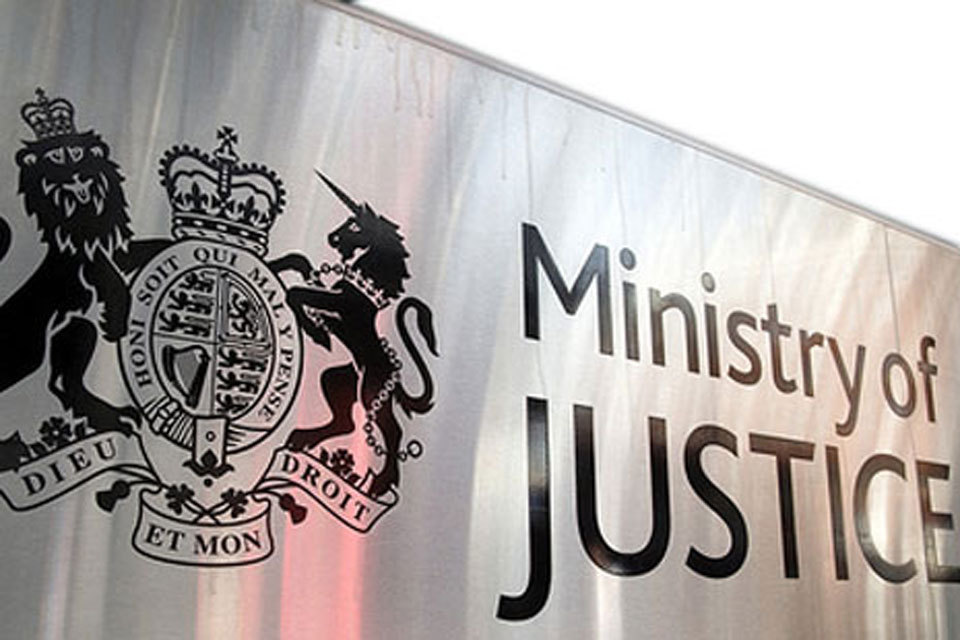Cabinet Office unit had been tasked with combing through government’s website to identify and help departments remove offensive language, after ‘racial slurs’ were found comment in several documents and comments
The Government Digital Service is working with departments to remove “offending content”, after MPs flagged the use of “racist language” in some departmental guidance, Cabinet Office minister Jeremy Quin has said.
In a letter to parliament’s Women and Equalities Committee, Quin said GDS had “conducted a search of content published to GOV.UK to identify and evaluate instances of discriminatory language”.
“GDS will work closely with the relevant publishing departments to ensure the expeditious removal or revision of offending content,” he said.
The search was ordered after the committee wrote to equalities minister Kemi Badenoch in July about the use of “racial slurs” in Department of Work and Pensions guidance used by doctors to assess benefit.
Slurs had also been published – and had not been deleted – in the comments section of the Civil Service Blog website. In all cases, the nature of the slurs or other offending language was not revealed.
“I understand that the documents have now been withdrawn. I would be grateful if you could confirm that these documents or comments have been withdrawn from use across the whole of the United Kingdom,” committee chair Caroline Nokes wrote. “Furthermore, I would be grateful if you could set out what your department is doing to ensure that there are no further racist, prejudiced or discriminatory terms being used in government documents, including those used by third parties in work on behalf of the government, and the government’s website.”
Related content
- Online service launched to apply for GOV.UK exemptions
- Number of services using GOV.UK Notify has quadrupled since 2020
- GOV.UK One Login expected to cost £305m – and deliver £1.75bn benefits, data reveals
Quin’s reply to the committee has not been published, but in a response to a parliamentary question from Green Party MP Caroline Lucas earlier in July, he had said the Cabinet Office would write to permanent secretaries reminding them about existing guidance on how to write about race and ethnicity “and asking them to ensure that it is easily accessible to all employees within their department and associated organisations”.
He said the concerns related to language in two documents dating back to 2006 and 2012, and a 2015 comment on GOV.UK.
“The 2006 document was written by an external contractor for use by their own staff, the 2012 document used the language within a quote from a non-civil service scientific paper published in 1990. Both documents are no longer in use and the comment has been removed from the web page,” he said.
“We do not tolerate racist, homophobic, sexist or any similarly unacceptable language in any form, including in government documents or on our web pages,” Quin said.
In a second letter last month, Nokes welcomed Quin’s assurance that the documents in question were no longer being used.
However, she said she had been “disappointed to learn that further documents were discovered to contain racist language”.
And she added: “In your letter, you did not address how the government was going to assure itself that there are no further documents currently in use that contain racist or discriminatory language. Given the discovery of further documents, I would be grateful to know what you are doing to review all government documents, and those produced by bodies delivering services on behalf of or associated with the government’s work. If you are not planning to undertake a review, I would be grateful to know the threshold at which the government would decide that a review is necessary.”
In his reply to the second letter, Quin expressed his “appreciation” to the committee for bringing their concerns to ministers’ attention.
“Rest assured, we are committed to addressing this matter swiftly,” he added.






Corinna Kopf OnlyFans Mega Link Download ( Visit https://archiver.fans )
TheRealRebeccaJ OnlyFans Mega Link Download
3TB Only Fans Mega
Only Fans Leaks Updates
Bulma XO OnlyFans Mega Link Download
Rubi Rose OnlyFans Mega Link Download
Ima Cri Baby OnlyFans Mega Link Download ( Visit https://archiver.fans )
Caaart OnlyFans Mega Link Download
Itz Grippy TV OnlyFans Mega Link Download ( Visit https://archiver.fans )
Free Only Fans Leaks ( Visit https://archiver.fans )
Black Ass Jenny OnlyFans Mega Link Download
Free Only Fans Leaks ( Visit https://archiver.fans )
Buy Leaked Only Fans ( Visit https://archiver.fans )
Rubi Rose OnlyFans Mega Link Download
Daalischus Rose OnlyFans Mega Link Download
Corinna Kopf OnlyFans Mega Link Download ( Visit https://archiver.fans )
Corinna Kopf OnlyFans Mega Link Download ( Visit https://archiver.fans )
Only Fans Leaks Updates
Buy Only Fans Leaks ( Visit https://archiver.fans )
Emmanuel Lustin OnlyFans Mega Link Download ( Visit https://archiver.fans )
Crii Baby RiRi OnlyFans Mega Link Download ( Visit https://archiver.fans )
Emmanuel Lustin OnlyFans Mega Link Download ( Visit https://archiver.fans )
Mega Link Store
TheRealRebeccaJ OnlyFans Mega Link Download
Buy Fansly Leaks ( Visit https://archiver.fans )
Yasmine Lopez OnlyFans Mega Link Download ( Visit https://archiver.fans )
Buy Leaked Only Fans ( Visit https://archiver.fans )
Mega Link Store
Ima Cri Baby OnlyFans Mega Link Download ( Visit https://archiver.fans )
Its Lunar Liv OnlyFans Mega Link Download
Its Lunar Liv OnlyFans Mega Link Download
Itz Grippy TV OnlyFans Mega Link Download ( Visit https://archiver.fans )
Buy Fansly Leaks ( Visit https://archiver.fans )
Mega Link Shop ( Visit https://archiver.fans )
Emmanuel Lustin OnlyFans Mega Link Download ( Visit https://archiver.fans )
Gina WAP OnlyFans Mega Link Download ( Visit https://archiver.fans )
Genesis Mia Lopez OnlyFans Mega Link Download
Free Only Fans Leaks ( Visit https://archiver.fans )
Genesis Mia Lopez OnlyFans Mega Link Download
Bulma XO OnlyFans Mega Link Download
GG With The WAP OnlyFans Mega Link Download
8TB Only Fans Mega ( Visit https://archiver.fans )
Buy Mega Links ( Visit https://archiver.fans )
Barely Legal Lexi OnlyFans Mega Link Download
Taylor Hall OnlyFans Mega Link Download
Lexi 2 Legit OnlyFans Mega Link Download
Buy Leaked Only Fans ( Visit https://archiver.fans )
Mikaila Dancer OnlyFans Mega Link Download
Only Fans Leaks Free Download
Ima Cri Baby OnlyFans Mega Link Download ( Visit https://archiver.fans )
Bulma XO OnlyFans Mega Link Download
Jenise Hart OnlyFans Mega Link Download
GG With The WAP OnlyFans Mega Link Download
Im xXx Dark OnlyFans Mega Link Download ( Visit https://archiver.fans )
Mega Link Shop ( Visit https://archiver.fans )
Only Fans Leaks Updates
Crii Baby RiRi OnlyFans Mega Link Download ( Visit https://archiver.fans )
Black Ass Jenny OnlyFans Mega Link Download
TheRealRebeccaJ OnlyFans Mega Link Download
Mulan Hernandez OnlyFans Mega Link Download ( Visit https://archiver.fans )
Buy Mega Links ( Visit https://archiver.fans )
10TB Only Fans Mega ( Visit https://archiver.fans )
Mulan Hernandez OnlyFans Mega Link Download ( Visit https://archiver.fans )
10TB Only Fans Mega ( Visit https://archiver.fans )
TheRealRebeccaJ OnlyFans Mega Link Download
TheRealRebeccaJ OnlyFans Mega Link Download
Buy Fansly Leaks ( Visit https://archiver.fans )
Daalischus Rose OnlyFans Mega Link Download
Itz Grippy TV OnlyFans Mega Link Download ( Visit https://archiver.fans )
Leah Mifsud OnlyFans Mega Link Download ( Visit https://archiver.fans )
Genesis Mia Lopez OnlyFans Mega Link Download
3TB Only Fans Mega
10TB Only Fans Mega ( Visit https://archiver.fans )
Corinna Kopf OnlyFans Mega Link Download ( Visit https://archiver.fans )
Its Lunar Liv OnlyFans Mega Link Download
Rebecca J OnlyFans Mega Link Download ( Visit https://archiver.fans )
Crii Baby RiRi OnlyFans Mega Link Download ( Visit https://archiver.fans )
Buy Only Fans Leaks ( Visit https://archiver.fans )
Emmanuel Lustin OnlyFans Mega Link Download ( Visit https://archiver.fans )
Leah Mifsud OnlyFans Mega Link Download ( Visit https://archiver.fans )
Bulma XO OnlyFans Mega Link Download
3TB Only Fans Mega
Free Only Fans Leaks ( Visit https://archiver.fans )
Only Fans Leaks Updates
Hot 4 Lexi OnlyFans Mega Link Download ( Visit https://archiver.fans )
Bulma XO OnlyFans Mega Link Download
GG With The WAP OnlyFans Mega Link Download
GinaWAP Only Fans PPVS Download https://urbancrocspot.org/tag/gg-with-the-wap/
Sammy02kVIP OnlyFans Leaks Mega Folder Link Download ( https://CrocSpot.Fun )
Bombshell Mint Porn ( https://urbancrocspot.org/the-real-bombshell-mint-only-fans-mega-link/ )
Alexis Texas OnlyFans Leaks Mega Folder Link Download ( https://CrocSpot.Fun )
GGWithTheWAP Only Fans Leaks https://urbancrocspot.org/product-tag/gg-with-the-wap/
The Real Bombshell Mint Only Fans Leaks ( https://UrbanCrocSpot.org/ )
Tytiania Sargent Porn ( https://UrbanCrocSpot.org/shop )
SlimAssTink SlimGoesRounds OnlyFans Leaks Mega Folder Link Download
The Real Bombshell Mint ( https://urbancrocspot.org/the-real-bombshell-mint-only-fans-mega-link/ )
MatiVIP OnlyFans Leaks Mega Folder Link Download
PrettyFaceSZN2.0 Naomi Nash OnlyFans Leaks Mega Folder Link Download ( https://UrbanCrocSpot.org )
BombshellMint OnlyFans PPVs ( https://urbancrocspot.org/the-real-bombshell-mint-only-fans-mega-link/ )
GinaWAP Free Only Fans https://urbancrocspot.org/tag/gg-with-the-wap/
ivermectin paste for humans ivermectin vs albendazole
Porn site
Buy Drugs